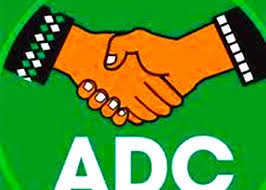The European Union has pledged to support Nigeria in recovering its stolen assets in foreign countries, tackle corruption, curb illicit financial flows, and enhance credible elections in the country.
Ms Samuela Isopi, Head of the EU delegation to Nigeria and ECOWAS, made the pledge Friday, in Abuja at the end of the 6th round of the Nigeria-EU Human Rights dialogue.
Isopi said Nigeria and representatives of the EU countries also came up with resolutions on human rights, safe migration, humanitarian situation, and issues of mutual concern.
She said that the EU was very much interested in strengthening cooperation and engagement with Nigeria on regional and international fora.
“We discussed democratic governance, in view of the upcoming general elections.
“We reaffirmed our commitments. As you know, the European Union has been engaged in supporting Nigeria’s democratic governance since the return to civilian rule in 1999, with election monitoring that has helped Nigeria improve its overall framework and electoral process.
“We had discussions on corruption and its impact on our societies. We also touched upon ways in which we can cooperate.
“I had the opportunity to reiterate the fact that the European Union is strongly supporting the efforts taken by the Nigerian government to tackle corruption through several programmes,” she said.
She pledged to continue to support the efforts that will be undertaken by the new administration.
“On the issue of asset recovery which is very important, and from our side we reassured Nigerian partners of our engagement to see how we can better work together and we identified some of the pathways that we could explore for these to be done.
“On migration, we can say that the engagements we have with Nigeria is very positive and we are satisfied with the improvements and progress that we have been making together on many issues.
“We concluded that we are both committed to a comprehensive migration partnership to tackle all the different dimensions of migration.
“We affirmed our commitments to help address the current humanitarian crises and from our side, we underline the importance of humanitarian access and respect of international humanitarian law,” Isopi said.
Earlier, Minister of Foreign Affairs, Geoffrey Onyeama, said that the Nigerian government, led by President Muhammadu Buhari would continue to work to ensure that all Nigerians are not denied their inalienable rights.
Onyeama who was represented by the Minister of State for Foreign Affairs, Zubairu Dada, said that the Buhari administration had made giant strides in the past decade to improve the election process and integrity.
“Security agencies are also working to ensure that people will be able to carry out their civic responsibility without fear. They are ready to act swiftly to protect life and properties around the country during the election,” Onyeama said.
Amb. Samson Itegboje, Director, International Organisation Division (IOD) in the Ministry said that the Nigeria-EU dialogue is a platform for Nigeria and the European Union to constructively engage on issues of mutual concerns on human rights and related matters.
He said there was a commitment from the European Union to support Nigeria in containing illicit financial flows, as well as help recover its stolen assets abroad and the assets returned to Nigeria.
“During today’s meeting, Nigeria used the opportunity of the dialogue to inform that it was prepared for the 2023 General Elections, and the INEC and security agencies were ready for the elections.
“Containment of illicit financial flows and asset recoveries were key to ensuring that needed financing to better the lives of populace were possible.
“Nigeria requested that European countries should simplify evidential requirements and other mutual legal assistance as appropriate, in order to facilitate international cooperation for timely recovery and return of recovered assets.
“Nigeria expects that all migrants, regardless of the migration circle must be respected and protected across all stages. There must also be firm commitments to eliminating all forms of discriminations against migrants including racism, intolerance and xenophobia.


